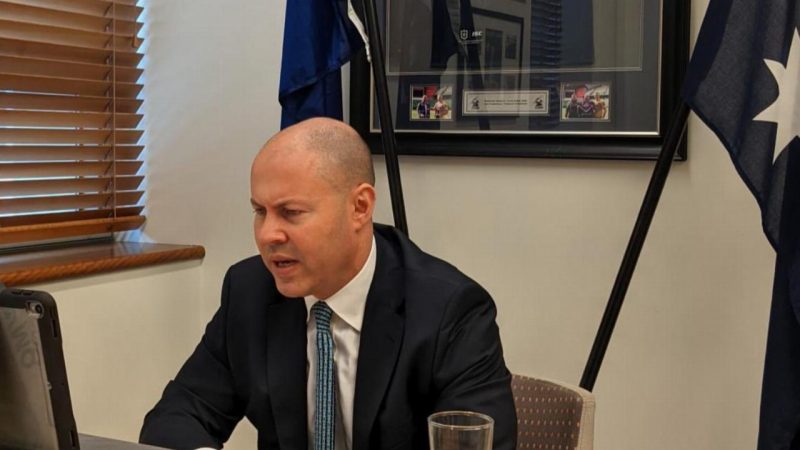- Despite a string of Delta induced economic downturns in recent months, Deloitte believes deficits will be $45 billion lower than the Treasury estimates between now and 2024-25
- Federal Treasurer Josh Frydenberg predicted a $106.6 billion deficit this fiscal year, Deloitte Access Economics predicts a $116 billion cash underlying deficit in 2021-22.
- However, the bad news is that the budget’s long-term outlook deteriorated dramatically, Deloitte’s Chris Richardson says
- Deloitte forecasts cash underlying deficits of $74 billion in 2022-23, $59 billion in 2023-24, and $49 billion in 2024-25
Despite a slew of terrible occurrences in recent months, Deloitte predicts deficits to total $45 billion less than the Treasury does between now and 2024-25.
Deloitte Access Economics believes that higher commodities prices, the recovery from Delta lockdowns, and high vaccine uptake across the country will result in significant budget savings in its six-monthly budget study.
“We’ve said for some time that, if our economy gets better, our budget will too,” Deloitte Access Economics partner, and principal report author Chris Richardson said.
“So, it’s no surprise that our red hot recovery prior to the Delta outbreak saw the deficit shrink from a record $204 billion in the year to February 2021, to $101 billion in the year to August 2021.”
Federal Treasurer Josh Frydenberg predicted a $106.6 billion deficit this fiscal year. It would be the second-largest deficit on record, after only the $134.2 billion deficit of 2020-21. He forecasts a $99.3 billion deficit in 2022-23, a $79.5 billion deficit in 2023-24, and a $57 billion loss in 2024-25.
When the economic suffering caused by Delta is factored in, Deloitte Access Economics predicts a $116 billion cash underlying deficit in 2021-22. That’s $9 billion more than the Treasury had budgeted for.
“But the news thereafter is sweet,” Mr Richardson said.
“We forecast cash underlying deficits of $74 billion in 2022-23, $59 billion in 2023-24, and $49 billion in 2024-25.
“Respectively, that’s $25 billion, $20 billion, and $8 billion better than Treasury currently budgets those years to be. Add all four years together, and that’s $45 billion back in the pockets of taxpayers.”
However, the bad news is that the budget’s long-term outlook deteriorated dramatically.
“We’ve underspent on social services for years,” Mr Richardson said. “And we’ll need to spend more yet.
“At the same time the world has become a more dangerous place for Australia. That makes for more expensive defence costs too. Allowing for these building cost pressures, the budget looks likely to settle at ongoing annual deficits of around $60 billion.”
However, Mr Richardson said there is not a $60 billion hole we need to fill fast, a move that would “hurt a still fragile economy”.
“Making up close to 3% of national income via some mix of higher taxes and lower spending won’t be a walk in the park,” he said.
“Chances are that it will make the political fights in the aftermath of the global financial crisis seem mild.”

